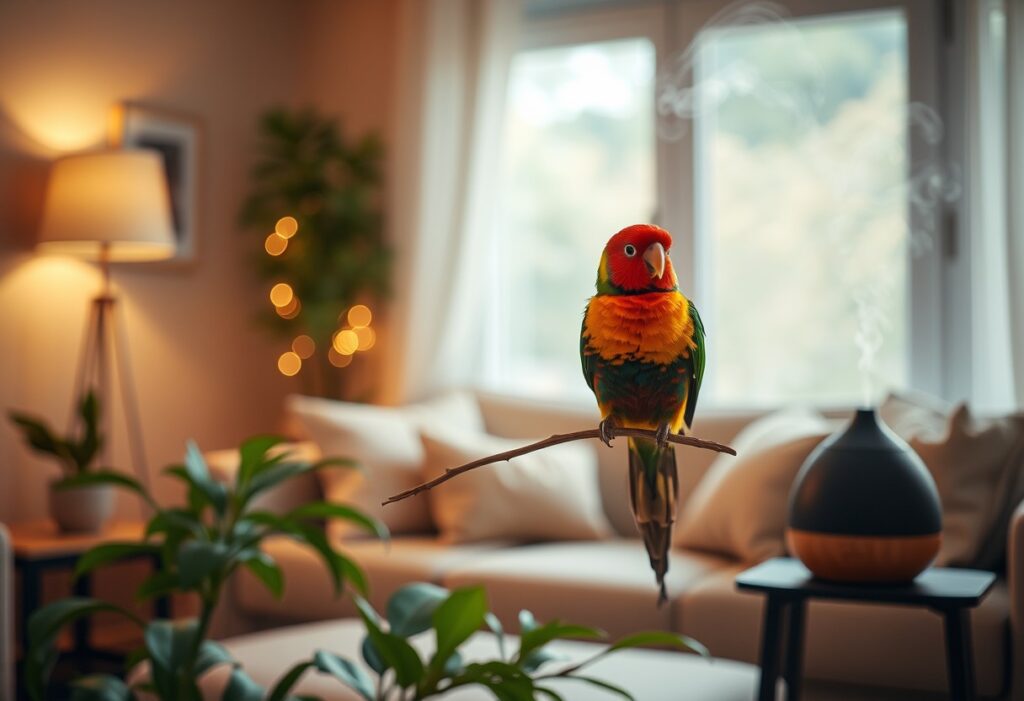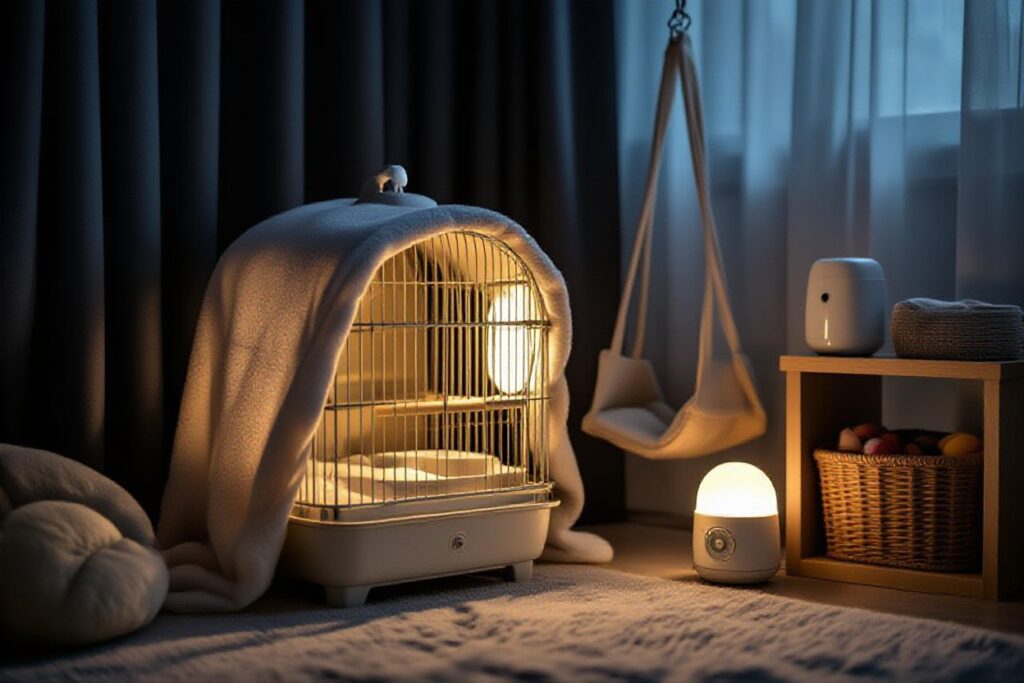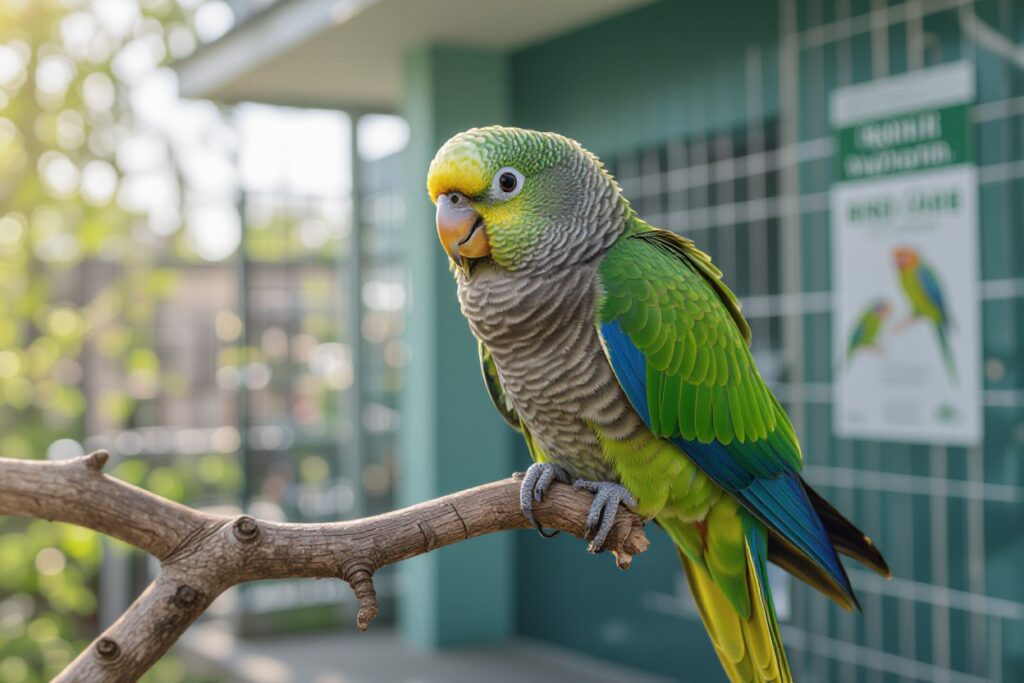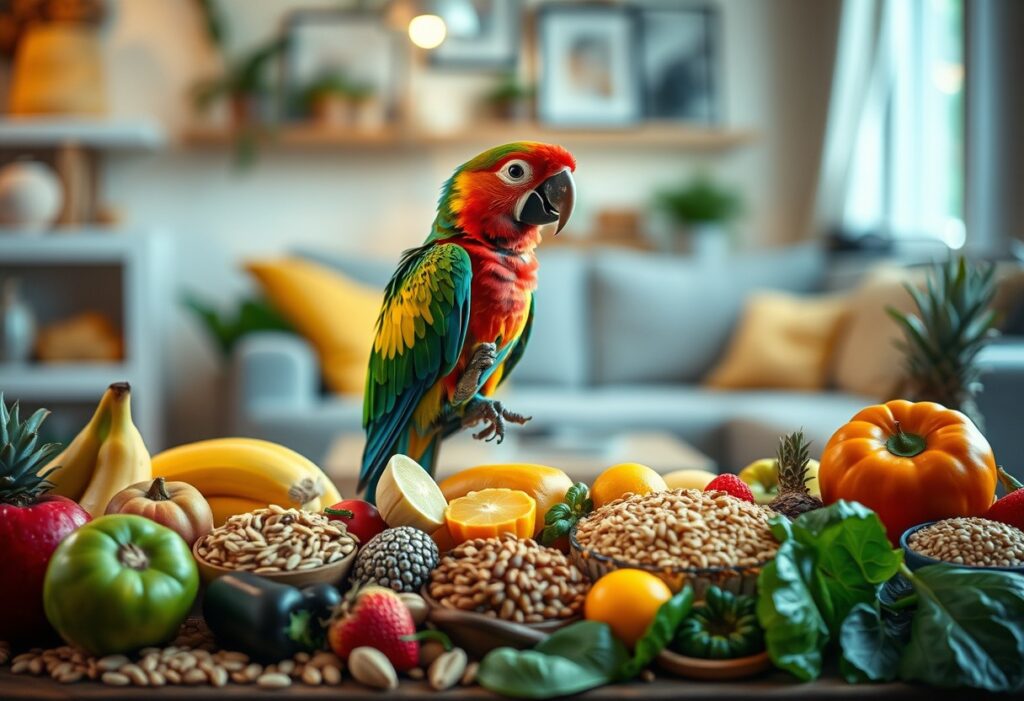Many pet bird owners are unaware of the positive effects that aromatherapy can have on their feathered friends. By using carefully selected crucial oils, you can create a soothing environment that may help reduce stress and anxiety in your birds. This holistic approach can also promote their overall well-being and enhance their social behavior. However, it’s crucial to remember that some oils can be harmful, so understanding which scents are safe for your avian companions is crucial for their health and happiness.
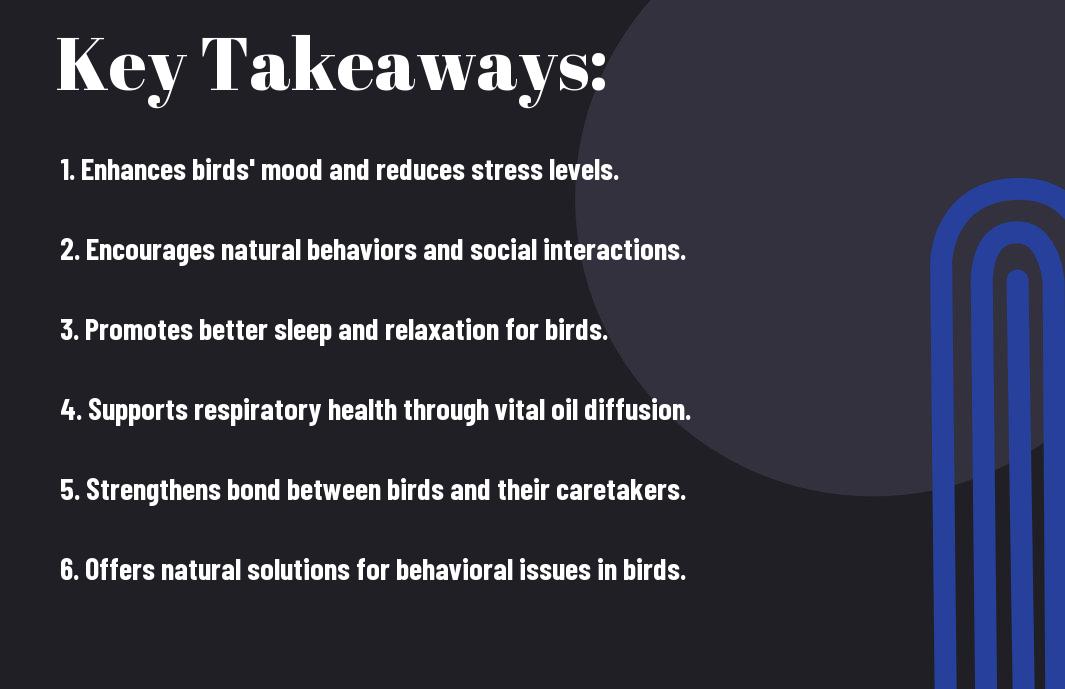
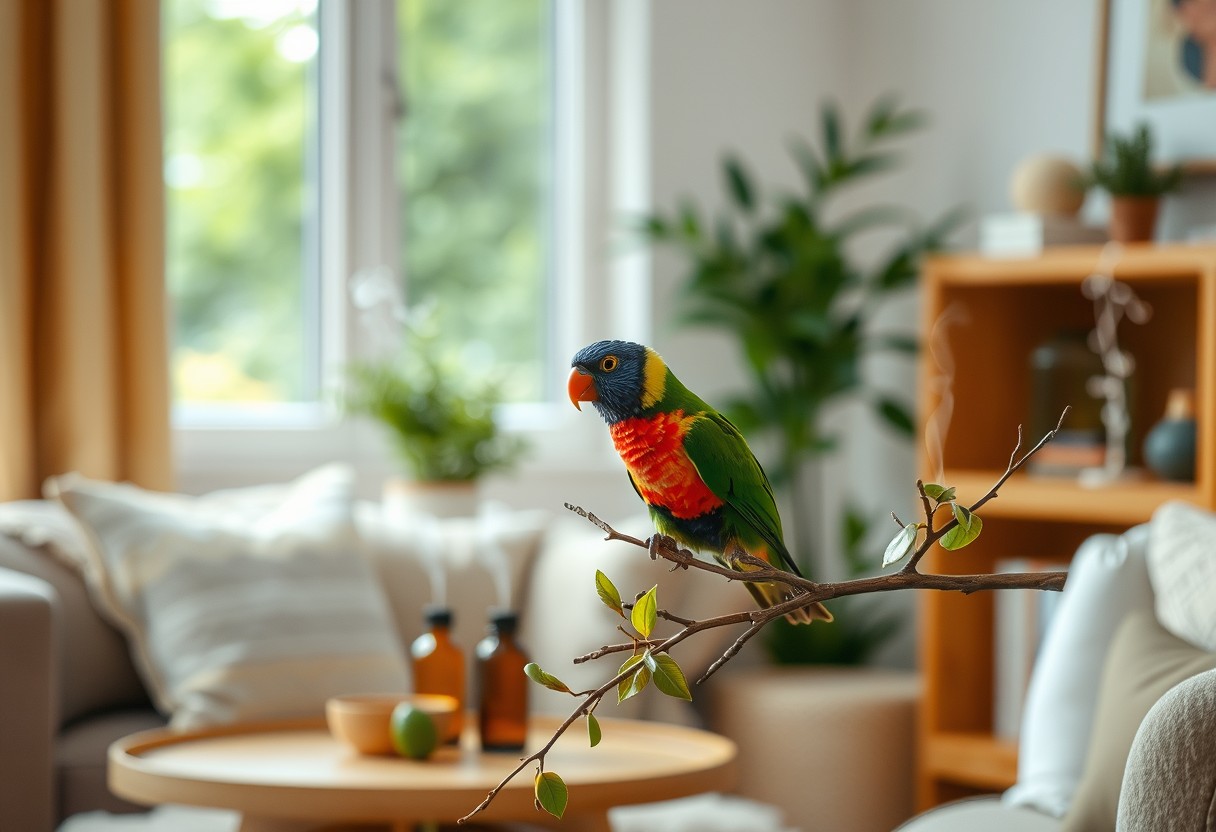
Understanding Aromatherapy
Your journey into the world of aromatherapy for birds starts with understanding the fundamental concepts of this holistic practice. Aromatherapy makes use of necessary oils derived from plants, herbs, and flowers to promote physical and emotional well-being. By harnessing the natural essence of these substances, you can create a harmonious environment for your feathered friends. Oils are typically either inhaled or absorbed through the skin, and they can elicit various effects such as relaxation, invigoration, or even antiseptic properties, depending on the oil used.
What is Aromatherapy?
To put it simply, aromatherapy is a therapeutic practice that utilizes the aromatic qualities of necessary oils. These oils hold individual characteristics and benefits, which can influence the mood and health of your birds. When used correctly, you can help alleviate stress, combat anxiety, and promote overall well-being in your avian companions. The practice encourages a more peaceful and soothing environment, which is crucial not only for you but also for your birds.
History of Aromatherapy in Animal Care
On a broader scope, the use of aromatherapy in animal care is not a modern phenomenon; it traces back centuries. Ancient cultures, including the Egyptians and Greeks, employed aromatic plants for health and wellness, though it was predominantly focused on humans. As the understanding of animal welfare has evolved, so has the recognition of the potential benefits of aromatherapy for animals. Today, many veterinarians and pet care professionals advocate for the integration of necessary oils into animal care regimens.
Animal care specialists have observed that specific necessary oils can offer therapeutic benefits for pets, including birds. While much of the research has focused on dogs and cats, the principles of aromatherapy can be applied to avian care as well. The practice aims to enhance emotional stability and reduce stress, contributing to a better quality of life for your furry companions. However, it’s imperative to note that some necessary oils can be toxic to birds, making it crucial for you to do thorough research and consult with a veterinarian before introducing any new scents into your bird’s environment.
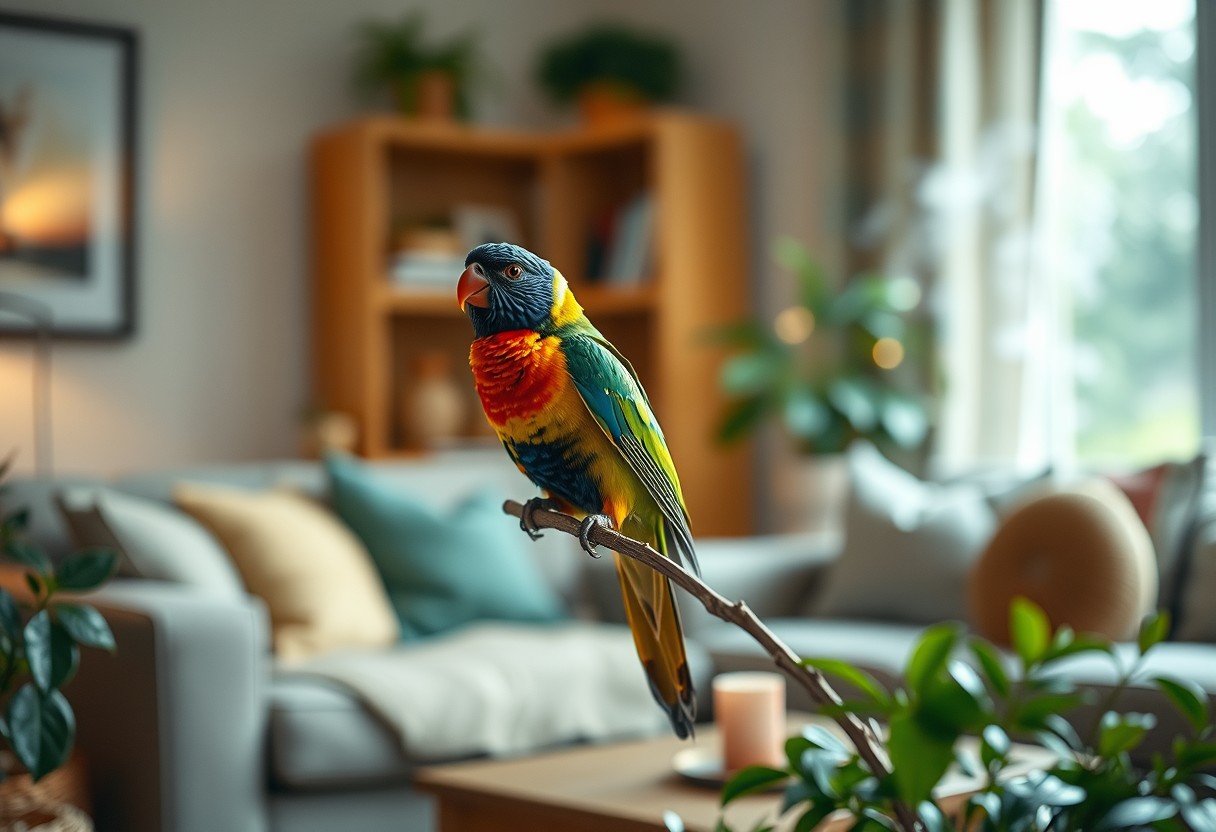
Benefits of Aromatherapy for Birds
Assuming you are looking to provide the best care for your feathered companions, incorporating aromatherapy into their environment can yield remarkable benefits. Unlike humans, birds are sensitive to their surroundings, including the scents they inhale. By utilizing crucial oils that are safe for birds, you can create a peaceful atmosphere that supports their well-being. Through various methods such as diffusers, sprays, or direct application, aromatherapy can significantly improve your birds’ quality of life.
Reducing Stress and Anxiety
Birds are inherently sensitive creatures, often experiencing stress and anxiety due to changes in their environment, loud noises, or lack of social interaction. Incorporating calming crucial oils such as lavender or chamomile can help alleviate these stressors. These oils work to soothe your birds, creating a more tranquil atmosphere in their living space. By reducing their anxiety levels, you ultimately contribute to a happier and healthier avian companion.
Creating a serene environment with the right crucial oils can also help mitigate behaviors associated with stress, such as excessive vocalization or feather plucking. By consistently introducing these calming scents, you may notice a marked improvement in your bird’s overall happiness and behavioral patterns. It’s an easy yet effective way to treat your bird’s emotional well-being.
Enhancing Mood and Behavior
Enhancing your bird’s mood can be just as crucial as reducing their stress. The psychological effects of certain aromas can uplift your pet’s spirits, making them more sociable, curious, and active. Essential oils such as sweet orange or ylang-ylang encourage positive behaviors, enabling your birds to thrive in their social groups. You may find that activating their playful side leads to more joyful interactions, both with their habitat and with you.
Understanding how different scents influence your bird’s behavior is crucial for optimizing their well-being. By experimenting with various oils, you can observe which ones stimulate their happiness and curiosity. A supportive environment enriched with positive scents will undoubtedly result in a more bonded relationship with your beloved birds.
Supporting Immune Health
Immune health is a vital component of your birds’ overall wellness. Certain crucial oils, like tea tree and eucalyptus, are known for their antimicrobial and antiviral properties. By carefully introducing these oils into your birds’ habitat, you can support their immune systems and create a protective barrier against sickness. Even the act of inhaling these potent scents can fortify their natural defenses, leading to healthier birds.
Furthermore, enhancing your birds’ environments with immune-boosting aromas may also promote healing if they are already under stress from illness. Rather than relying solely on veterinary treatments, aromatherapy complements conventional care, providing an all-natural approach to keeping your feathered friends fit and healthy.
Promoting Bonding and Socialization
Promoting bonding between you and your birds is a rewarding process that can be enhanced by aromatherapy. By using gentle scents that evoke comfort and familiarity, your birds are more likely to see you as a trusted companion. When your feathered friends are calm and relaxed, they may be more open to interaction, allowing for stronger social connections. This bonding time is crucial not only for training but also for building a trusting relationship.
Health benefits aside, the emotional connection you establish through aromatherapy can greatly enhance the experience of pet ownership. When you engage with your birds in an aromatic setting, the positive vibes foster a nurturing atmosphere where they feel secure and loved. As a result, you create an environment conducive to socialization, leading to happier and healthier interactions.
Safe Practices for Using Aromatherapy with Birds
Unlike many household pets, birds have unique respiratory systems that can be sensitive to various substances, including vital oils. Therefore, it is crucial to approach aromatherapy with caution and awareness. To ensure your feathered friend’s safety, it’s important to understand how to properly use aromatherapy in a way that benefits rather than harms them.
Choosing Bird-Safe Essential Oils
Any vital oil that you consider for your bird should first be researched thoroughly for its safety. Some oils can be highly toxic to birds, leading to serious health complications. Essential oils like tea tree, eucalyptus, and cinnamon are considered harmful, so you’ll need to avoid these at all costs. Instead, look for oils known to be safe for birds, such as lavender or chamomile. Always check reputable sources or consult with an avian veterinarian before introducing any new oils into your bird’s environment.
Administration Methods: Diffusion vs. Direct Application
Practices involving the administration of vital oils should be carefully considered. Generally, aromatic diffusion is the safest approach for birds. This method disperses the vital oil into the air, allowing your bird to experience the benefits without direct contact. Direct application of oils onto your bird’s skin or feathers can lead to toxicity or skin irritation, and it is best to avoid this method altogether. When diffusing, ensure the space is well-ventilated and closely monitor your bird for any signs of discomfort.
Plus, always remember that you should use vital oils sparingly in a bird’s environment. The goal is to create a gentle atmosphere without overwhelming your bird’s sensitive senses. Start with a very small amount and observe your bird’s reaction to the aroma. If you notice any adverse changes in behavior, such as coughing, sneezing, or signs of distress, immediately discontinue use. Your bird’s health and well-being should always come first, and using bird-safe oils in moderation while employing gentle diffusion techniques can establish a positive, calming atmosphere for your beloved pet.
To Wrap Up
Presently, the integration of aromatherapy into your avian care routine can provide numerous benefits to your feathered friends. By using crucial oils that are safe and beneficial for birds, you can create a calm environment that promotes relaxation and reduces stress in your pet. Whether it’s through diffusing oils or using them in cleaning products, the positive effects on your bird’s mood and overall well-being are noteworthy. Furthermore, when you prioritize proper ventilation and the careful selection of crucial oils, you minimize any risks and maximize the therapeutic benefits for your birds.
Incorporating aromatherapy into your bird’s life not only enhances their environment but also strengthens the bond you share with them. You may notice your bird responding positively to the scents, exhibiting behaviors such as preening and singing more frequently, which indicates a sense of comfort and safety. Ultimately, being mindful of your bird’s needs and adopting effective aromatherapy practices can greatly contribute to a happier, healthier life for your feathery companion. So, take the time to explore the possibilities and observe the delightful transformations in your bird’s behavior and well-being.
Q: What is aromatherapy and how can it benefit birds?
A: Aromatherapy is a holistic healing practice that utilizes necessary oils extracted from plants to promote physical and emotional well-being. For birds, aromatherapy can offer various benefits, including stress reduction, enhanced mood, and improved respiratory health. Certain necessary oils, like lavender and chamomile, can help calm anxious birds, while others, such as eucalyptus, can support respiratory health. When used safely and correctly, aromatherapy can contribute to a bird’s overall happiness and health.
Q: Which necessary oils are safe for birds?
A: Not all necessary oils are safe for birds, as some can be toxic. Safe options include lavender, chamomile, and rosemary. However, it is crucial to use these oils in moderation and ensure they are properly diluted. Always consult with a veterinarian familiar with avian care before introducing any new necessary oil to your bird’s environment. Avoid oils such as tea tree, cinnamon, and clove, which can be harmful to their health.
Q: How can I use aromatherapy effectively for my bird?
A: To use aromatherapy effectively for your bird, start by selecting safe necessary oils and ensuring they are well-diluted. You can use a diffuser to disperse the scent in a well-ventilated area away from your bird’s cage. Alternatively, you may apply a diluted solution to a cloth and gently wave it around the cage to introduce the aroma. Always observe your bird’s behavior; if they show signs of distress or discomfort, remove the source of the scent immediately. Consistent use of aromatherapy can create a calming environment, helping to improve your bird’s mood and well-being.
